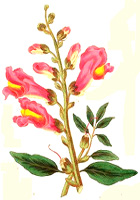
臨床心理醫師梁惠美說,十五六歲青春期的男生女生,有知心的朋友后,很容易模糊雙方之間的關係,而產生同性戀人關係。
她認為,雙方在一起覺得很舒服,且各有特質,會互相吸引和欣賞,由此產生連自己都不清楚的愛慕關係,或者崇拜對方。
“如果有一方有心誤導彼此之間的關係,就會發生同性戀情結。”
她認為,家庭因素並不會構成同性戀情結,即使一名自小在眾多女性家庭成員成長的男生,可能會顯得娘娘腔,但並不代表以后會成為同性戀者。
“有數個個案顯示,一些人曾在青春期,與同性發生關係,但是,當他們長大在社會工作后,才知道本身並非同性戀者。”
The explanations in Wikipedia, which was accessed on 27 April 2008...
A homosexual woman - or commonly known as a lesbian is a woman who is romantically and sexually attracted only to other women. Women who are attracted to both women and men are more often referred to as bisexual. An individual's self-identification might not correspond with her behavior, and may be expressed with either, both, or neither of these words.
Etymology
The word lesbian dates back at least to 1732 and lesbianism appears in the 1870 Oxford English Dictionary meaning sexual orientation rather than a reference to Sappho and inhabitants of Lesbos. Lesbian as an adjective is in the 1890 Oxford English Dictionary and as a noun by 1925. Until the early twentieth century lesbian was interchangeable with Sapphist.
The word lesbian dates back at least to 1732 and lesbianism appears in the 1870 Oxford English Dictionary meaning sexual orientation rather than a reference to Sappho and inhabitants of Lesbos. Lesbian as an adjective is in the 1890 Oxford English Dictionary and as a noun by 1925. Until the early twentieth century lesbian was interchangeable with Sapphist.
History
The earliest known written references to same-sex love between women are attributed to Sappho (the eponym of sapphism), who lived on the island of Lesbos in ancient Greece from about 625 to 570 BCE and wrote poems which apparently expressed her sexual attraction to other females. Modern scholarship has suggested a parallel between ancient Greek pederasty and the friendships Sappho formed with her students. Lesbian relationships were also common among the Lacedaemonians of ancient Sparta. Plutarch wrote "love was so esteemed among them that girls also became the erotic objects of noble women."
Accounts of lesbian relationships are found in poetry and stories from ancient China. Research by anthropologist Liza Dalby, based mostly on erotic poems exchanged between women, has suggested lesbian relationships were commonplace and socially accepted in Japan during the Heian Period. In medieval Arabia there were reports of relations between harem residents, although these were sometimes suppressed. For example Caliph Musa al-Hadi ordered the beheading of two girls who were surprised during lovemaking. During the twelfth-century Etienne de Fougères derided lesbians in his Livre des manières (about CE 1170), likening them to hens behaving as roosters and reflecting a general tendency among religious and secular authorities in Europe to reject any notion women could be properly sexual without men.
Lesbian feminism
Many lesbians have been involved in women's rights. Late in the 19th century, the term Boston marriage was used to describe romantic unions between women living together, often while contributing to the suffrage movement. Lesbian feminism gained renewed popularity in North America and Western Europe during the "second wave" of the 1970s and early 1980s. By the end of the 1970s lesbian feminism was accepted as a field of study within academic institutions, although mostly as a branch of feminist disciplines. More recently, lesbian feminism has emerged as an expression of dissatisfaction with the 1970s era second wave feminist and gay liberation movements.
Lesbian feminist texts have examined the influence of institutions such as patriarchy, capitalism and colonialism on gender and sexuality with mixed success, sometimes describing lesbianism as a rational result of alienation and dissatisfaction with these institutions. In her 1980 essay Compulsory Heterosexuality and Lesbian Existence, Adrienne Rich characterized heterosexuality as a violent political institution making way for the "male right of physical, economical, and emotional access" to women. Other key thinkers and activists have included Rita Mae Brown, Audre Lorde, Marilyn Frye, Mary Daly and Sheila Jeffreys.













No comments:
Post a Comment